There's a new luxury tiny-house community near Atlanta where 500-square-foot cottages cost up to $200,000 - see what it's like to live there
Frank Olito

- The Cottages on Vaughan is a tiny-house community in Clarkston, Georgia, made up of eight cottages.
- The houses cost up to $200,000, measure less than 500 square feet, and have high-end finishings.
- The parking lot, front porches, and communal areas were designed to encourage socialization.
Just 11 miles from downtown Atlanta, Georgia, there is a unique community of tiny houses designed to change the way people live.
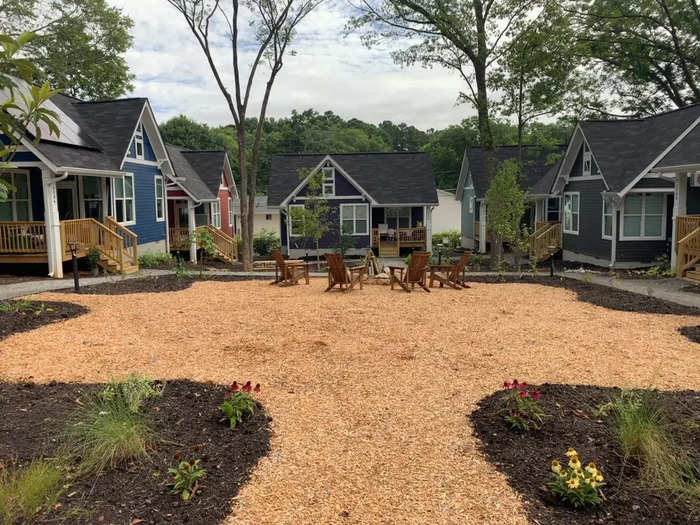
Three years ago, Will Johnston and his nonprofit organization, MicroLife Institute, began talks with the mayor of Clarkston, Georgia, to start a pilot project. The mission was to build sustainable tiny homes and to create a thriving, small-scale community.
In July, the Cottages on Vaughan officially opened, and residents moved into the eight tiny houses.
There are eight homes in the community, and they're all less than 500 square feet.
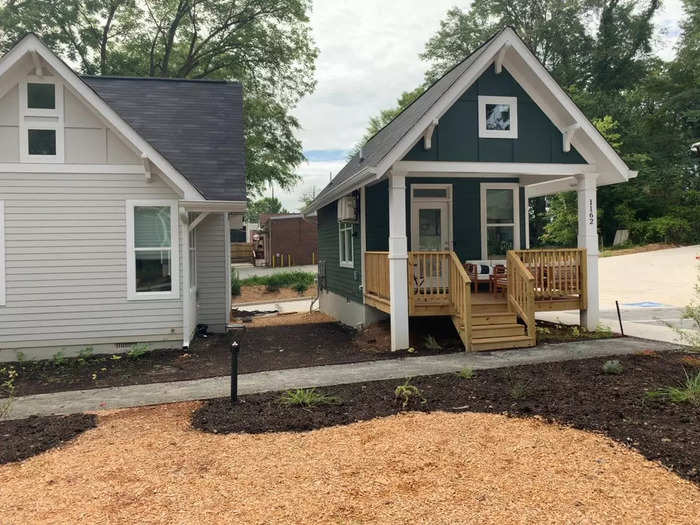
Technically, a home is considered "tiny" if it's under 400 square feet, but these houses are still small: Seven of the eight homes measure 492 square feet, and one model is 250 square feet. The entire community sits on a half-acre lot in Clarkston.
The homes sold for between $118,000 and $200,000 each.
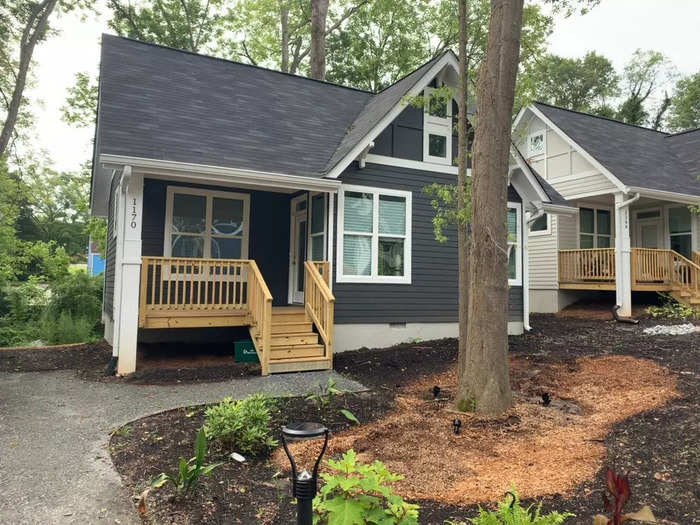
During the building process, 1,500 people joined a waitlist to purchase one of the houses. That list was narrowed down to eight people who shelled out up to $200,000 despite the fact that the median cost of a tiny house today is about $60,000.
Johnston, who is also one of the eight residents in the community, said the price of the houses went so high because they are different from typical tiny homes. Instead of being on wheels, they are on foundations and are built sustainably. He also said the cost of construction during the pandemic was much more expensive, a trend seen across the US.
Still, they had no problem finding buyers.
"We proved it was a desirable product," Johnston said.
Each of the homes has a large front porch, which encourages socialization among residents.
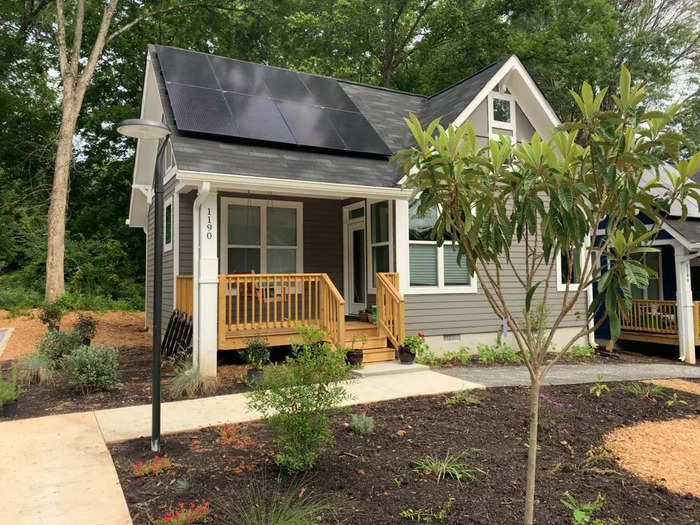
The porches were purposely built large — 8 1/2 feet by 13 feet — so residents can hang out together. Johnston said one of the biggest goals with this pocket community was to help stop the "loneliness epidemic," which was exacerbated by the pandemic.
Johnston said that, generally speaking, houses, condos, and apartments are built to maximize privacy and limit interaction with neighbors. This can lead to increased feelings of loneliness, which can be extremely harmful to mental and physical health.
"We built the cottages in a way for people to connect through the built environment, the design, and the layout," he said. "Meaning, I will interact with someone on a daily basis. I will be noticed as a person and remind myself that other people exist and have a small connection with them daily."
Inside Johnston's tiny house, there is a large living room, a kitchen, a bathroom, and a bedroom.
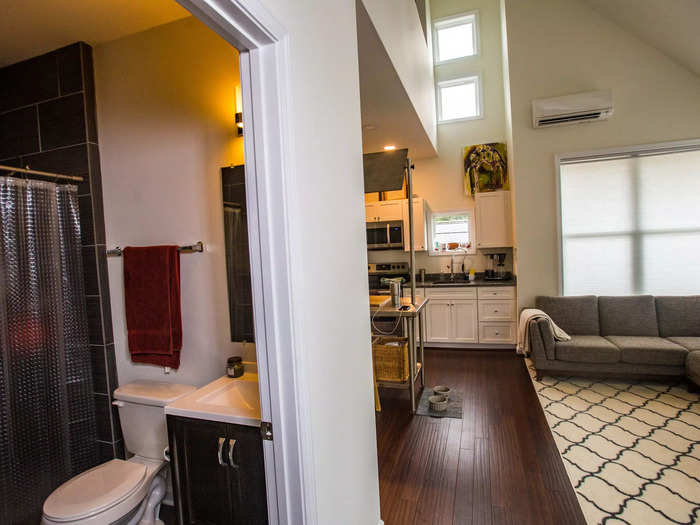
Johnston said his friends are always shocked to see he can fit a sectional sofa in his living room.
The kitchen has high-end finishings and a backdoor that leads to a private backyard.
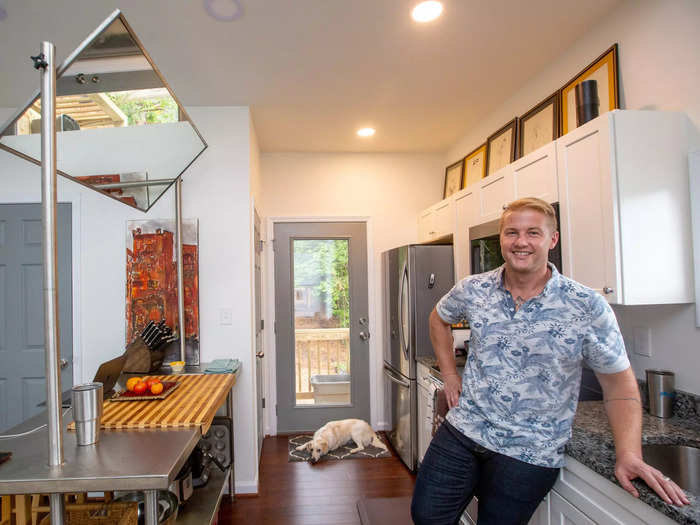
"We replaced quantity for quality," Johnston said.
Johnston's house even comes with a washer and dryer.
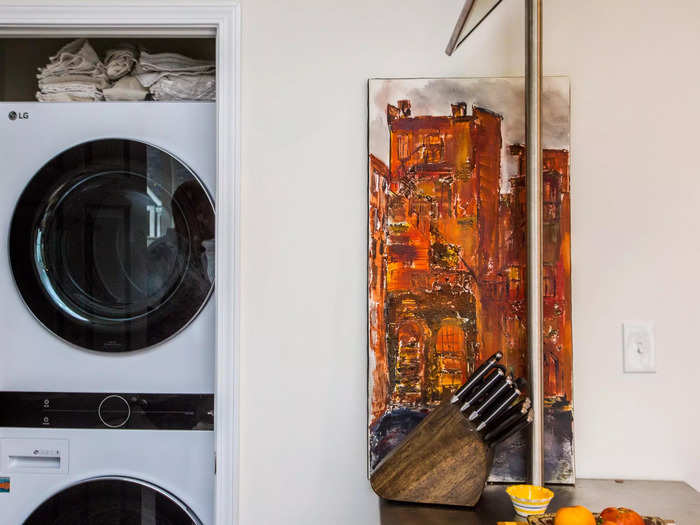
All the homes have the same layout with the same amenities, except for the 250-square-foot tiny house.
Since the cottages are so close together, they were designed with an "open side" and a "closed side" to ensure some privacy.
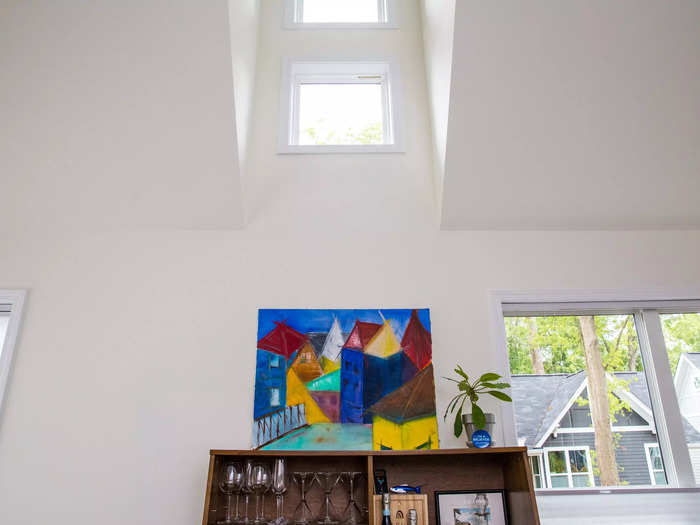
"The open side has large windows facing its side yard, while the closed side has high windows and skylights to bring in ample light while preserving privacy," the Cottage on Vaughan website reads. "The result is that neighbors do not peer into one another's living space."
Outside the homes, there are three communal areas.
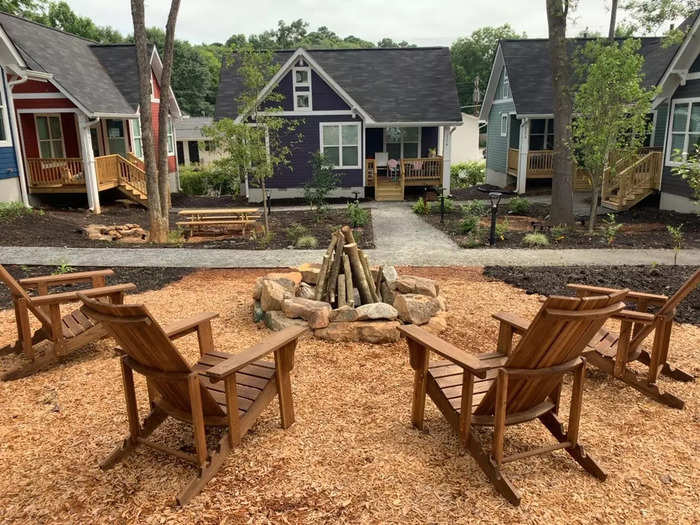
The community has a firepit, picnic tables, and a pergola. All the houses face these communal areas and residents are encouraged to interact with each other.
There's also a community garden.
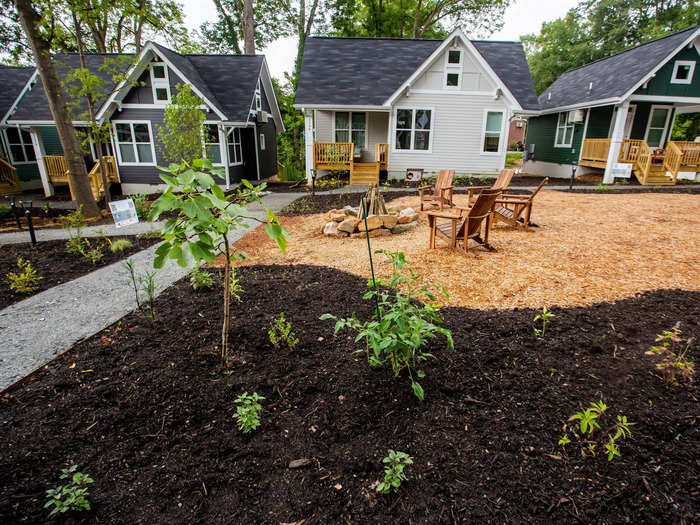
The garden has edible plants that all residents can use.
The community also has a parking lot, which is designed to encourage more socializing.
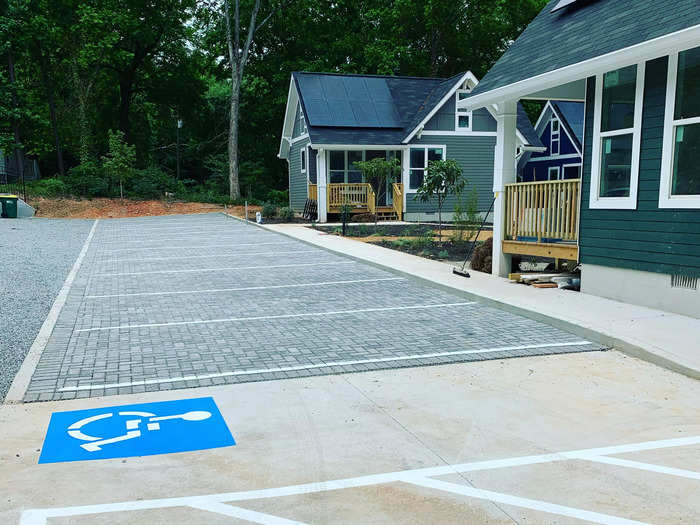
The parking lot was designed away from the houses so that residents have to walk through the shared spaces and engage with each other daily.
The residents agreed to participate in the community-like atmosphere when they bought the houses.
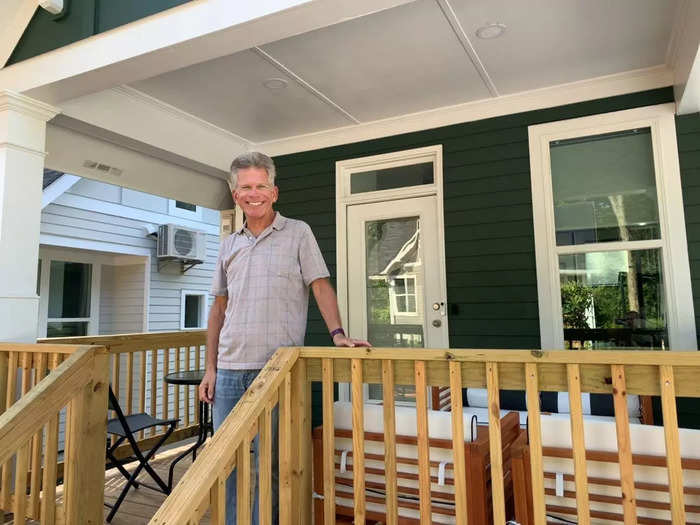
The residents range from a 23-year-old graduate student to a 61-year-old business owner. Johnston said they agreed to be part of the community and to open their homes to the general public twice a year to educate people about micro-living and community-based lifestyles.
"I have lived here for just over a week and I have spoken to at least one of my neighbors every day," Rich Pasenow said on the Cottages on Vaughan site. "I also love the general community interest and support."
Johnston said he hopes this unique style of living will be part of the solution to America's many housing issues.
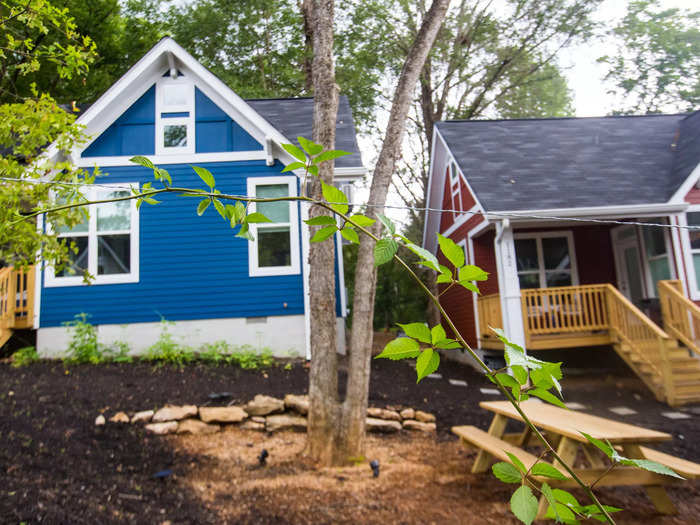
Currently, there is a housing shortage. In the US, the largest demographic is single adults who live alone, which makes up 28% of our population, and close to half the population are adults living with other adults without children, according to AARP's "Making Room: Housing for a Changing America" study. Meanwhile, one-bedroom homes and studios make up only 12% of housing.
With this issue and the loneliness epidemic weighing heavily on Americans, Johnston thinks these smaller cottages could be one solution.
"We need to build better community-driven communities, so we can build a better and stronger society," he said.
Johnston thinks the Cottages on Vaughan is just the beginning of fixing the broken housing system.
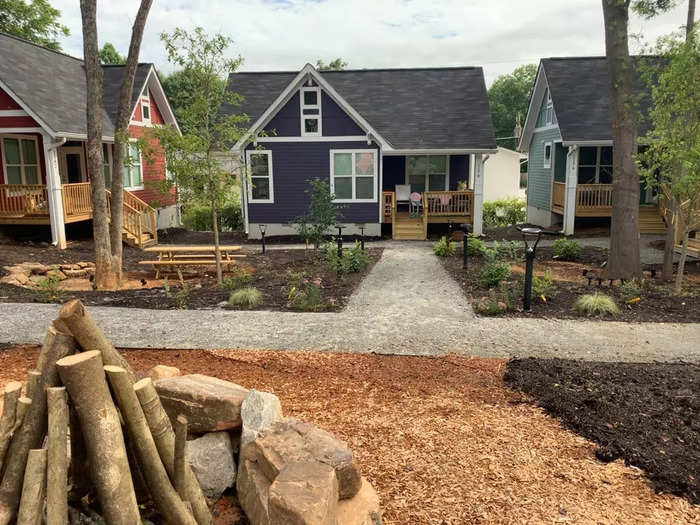
"We hope this project will inspire others," Johnston said. "We don't want to stop here."
READ MORE ARTICLES ON
Popular Right Now
Advertisement